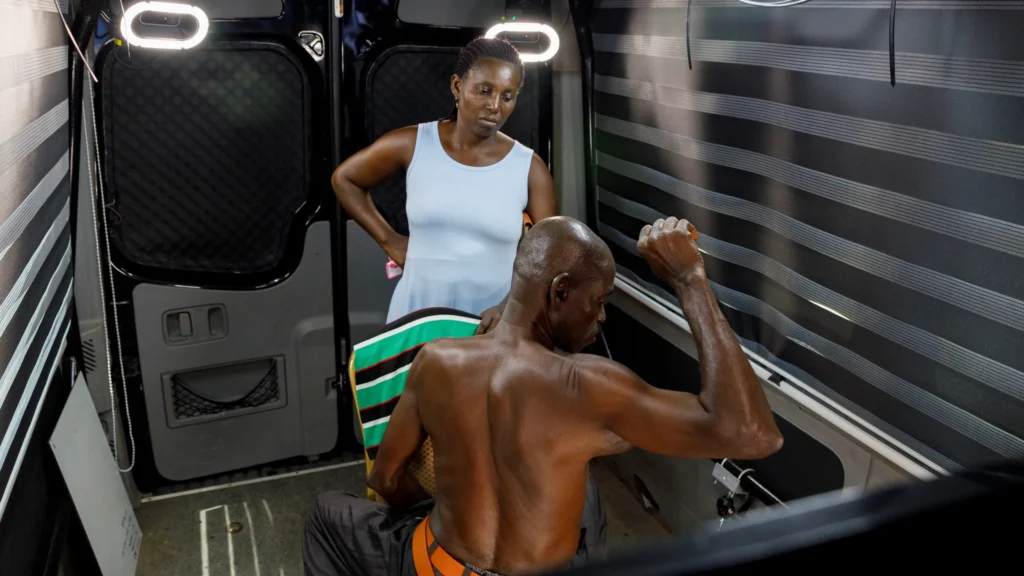Ghana has launched its first live trials of Microsoft’s 3D telemedicine technology, offering new hope to patients requiring specialized medical care. The cutting-edge system uses 3D cameras to capture detailed images of patients from every angle, allowing doctors from around the world to assess cases remotely and provide expert opinions.
For Charles Owusu Aseku, a man who has battled a recurring keloid growth on his neck for over two decades, the trial represents a long-awaited breakthrough. Having spent tens of thousands of dollars and undergone two unsuccessful surgeries, Aseku now hopes that multiple specialists assessing his condition simultaneously will lead to an effective solution.
“Normally, when you go to a hospital, you see only one doctor. But here, I’ve seen a lot of doctors from different places, which makes me happy because their combined experience might finally help me,” he said.
During the trials, doctors are stationed nearby, observing 3D images of patients and discussing treatment options. However, in a real-world setting, this technology could enable pre- and post-operative consultations remotely, significantly reducing the need for travel.
Improving Access to Specialized Care
Beyond complex cases like Aseku’s, 3D telemedicine could be life-changing for patients in remote areas.
George Opoku, a 68-year-old farmer from Akyem Pameng in Ghana’s Eastern Region, was referred to Korle-Bu Teaching Hospital in Accra for a sarcoma in his armpit. The trip would have required an overnight stay and high transportation costs. Instead, his doctor at Koforidua Regional Hospital enrolled him in the 3D telemedicine trial, allowing him to be examined by specialists without leaving his region.
“I was happy I didn’t have to travel all the way to Korle-Bu. It would have been expensive, especially for transportation and accommodation,” Opoku said.
Experts believe this technology can bridge the healthcare gap in Ghana by connecting rural patients with top specialists globally.
A Future of Remote Healthcare in Ghana
Microsoft’s principal engineer, Spencer Fowers, is optimistic about the trial’s potential to revolutionize medical consultations across Africa.
“You can rotate the patient’s image, look at them from any angle, and doctors can even draw directly on the image to indicate treatment plans. This allows for pre- or post-surgical consultations without the need for travel,” Fowers explained.
Though not directly involved in the project, Ahensan Dasebre, a senior resident at the National Reconstructive Plastic Surgery and Burns Centre at Korle-Bu, supports the initiative, highlighting Ghana’s doctor shortage and the need for telemedicine solutions.
“We are already behind in terms of the number of doctors available to care for our population. If someone in a remote town needs specialized care, a referring doctor could use this technology to get them the best possible treatment, no matter where they are,” Dasebre said.
As the trial continues, health professionals and patients alike are hopeful that Ghana will soon adopt 3D telemedicine as a mainstream solution, ensuring that even the most remote patients receive world-class medical care.



